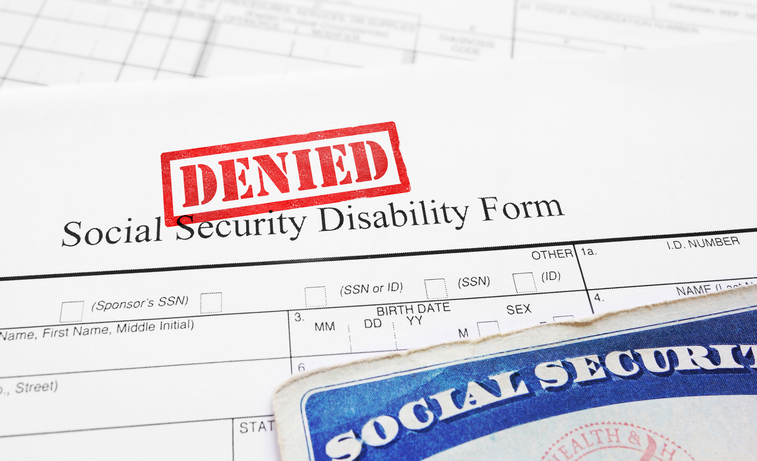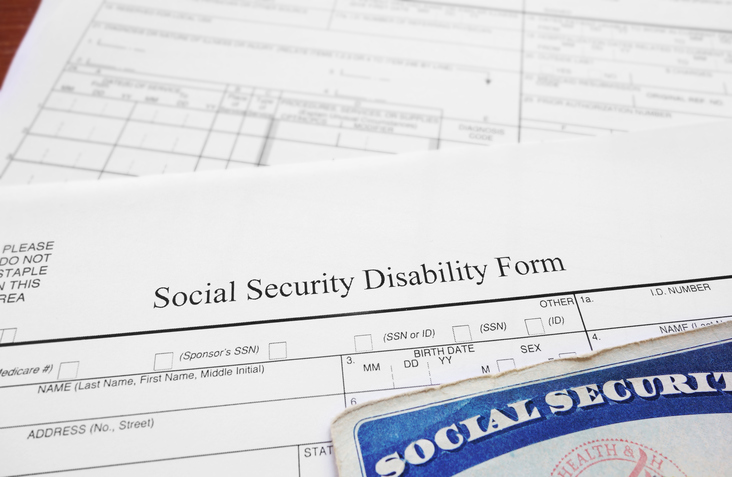Blog

Social Security Disability Claim Denied? Here Are 5 Possible Reasons Why
If you have a disability that prevents you from working, the U.S. Social Security Disability Insurance (SSDI) program can be a source of economic support. SSDI is funded through payroll taxes, and people who are disabled are eligible provided they have enough “employment credits” in their previous employment history.
SSDI beneficiaries have to be 18 years old or older. The children and spouse of someone who is disabled and unable to work may be eligible to receive “auxiliary” benefits, which are partial.
Seventy Percent of SSDI Claims Are Denied
A whopping 70% of SSDI claims are denied. It is very important not to give up if you are denied! You can apply again with a much better chance of success. If your claim has been denied, contact Aronova & Associates. We can help you through the process, making sure you and your loved ones receive the benefits you rightly deserve.
If you’ve been asking “why was I denied Social Security disability payments?”, read on. Here are 5 reasons claims are commonly denied.
SSDI Denial Reason 1: Incomplete Paperwork
A surprising number of claims are denied because the paperwork is incomplete. Applying for SSDI can be lengthy and complicated, and can be somewhat confusing.
A lawyer from Aronova & Associations can review your paperwork and help you complete the process thoroughly.
SSDI Denial Reason 2: Insufficient Medical Evidence
To be approved for SSDI, you need to present medical evidence that your condition makes you unable to work. A doctor needs to examine you and document whether or not your condition renders you unable to work.
It’s very important to note that, even if you have seen a physician frequently for the condition, your claim may still be denied if the physician hasn’t specifically documented your disability vis-à-vis work, in writing.
You shouldn’t assume either that your doctor or the Social Security office will do this automatically. You need to discuss your ability to return to work with your doctor, and request that your physician document your condition for SSDI.
If you have doctor’s notes regarding time off work, excusing you from work, or advising you to follow a modified schedule, include them with your application. Be sure to keep copies.
Disability Denial Reason 3: Failure to Follow Treatment
When people have a debilitating injury or condition, doctors often prescribe a course of treatment. This could be medication, physical therapy, or an exercise regimen. If you have been prescribed a course of treatment but haven’t followed it, your SSDI is very likely to be denied.
Why? Because the examiner is actually not able to tell if you are unable to work without knowing how the injury responds to treatment.
If there is a specific reason you have not followed your doctor’s treatment, you can address it during the appeal process. It’s wise to have an attorney representing you if that is the case.
Disability Denial Reason 4: Your Income Is Too High
Sometimes people who are disabled and unable to work at their previous occupations can still work and earn a certain amount. The Social Security Administration (SSA) terms this type of work “substantial gainful activity,” and defines it as:
- Work that involves significant and productive duties, and
- Work in which people earn more than the allowed monthly income limit.
If people with disabilities have substantial gainful activity, the SSA may feel they can work, and thus deny their SSDI claim.
The substantial gainful activity figure usually changes each year. For 2018, it is $1,180 per month. It you are legally blind, it is $1,970 per month.
SSDI Denial Reason 5: Previous Denial
Yes, unbelievably, it is possible to be denied just because you were denied before.
People whose SSDI applications have been denied may try to file a new claim. It may seem like this is a smarter move than going through the appeal process.
However, it is better to go through the appeal process. A reviewer who sees a previous denial may deny a new claim.
NY Social Security Disability Lawyer
An SSDI denial when you are unable to work can be bewildering and frightening. Don’t face it alone. The Social Security disability insurance lawyers at Aronova & Associates have experience with SSDI clients in New York City and Long Island.
Don’t give up! A skilled NY social security disability lawyer at Aronova & Associates can assist you at any step of the process, whether you used a lawyer initially or not.
We will help you appeal and execute your claim. Call us today at (516) 640-3900.
Contact Us
Ready to Work for You
Aronova & Associates is a firm for all New Yorkers. Our services are available in multiple languages and tailored to the needs of every client. The first step in providing you with the help you need is a free consultation to discuss your case. When you’re ready to talk, we’re ready to get to work for you.
Hours
Mon - Fri 9 AM to 6 PM
Disclaimer: The submission of our contact form does not form an attorney-client relationship. You may not rely upon this information as legal advice.

